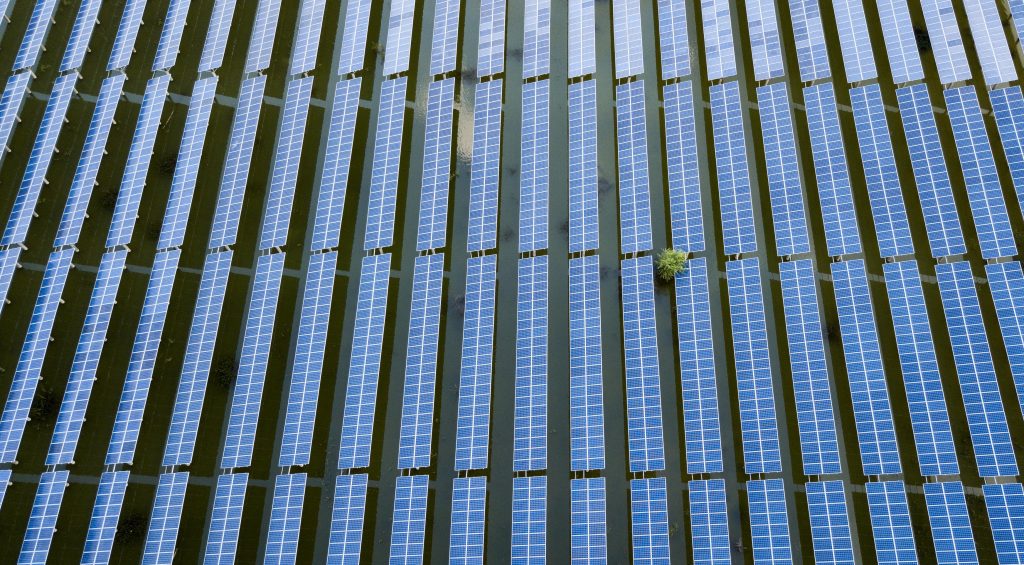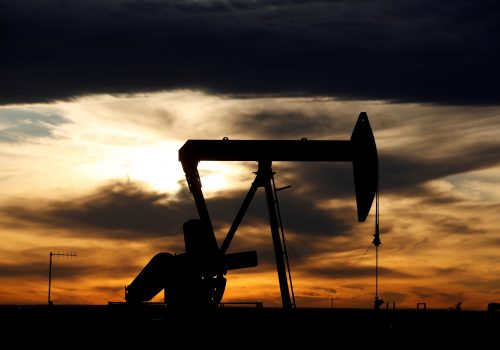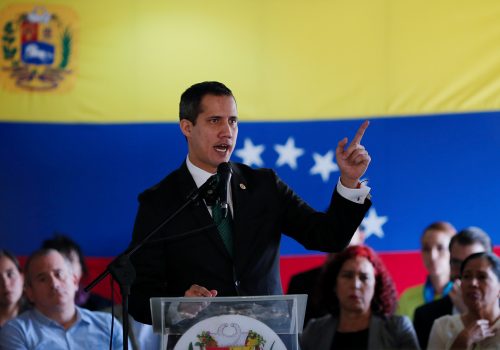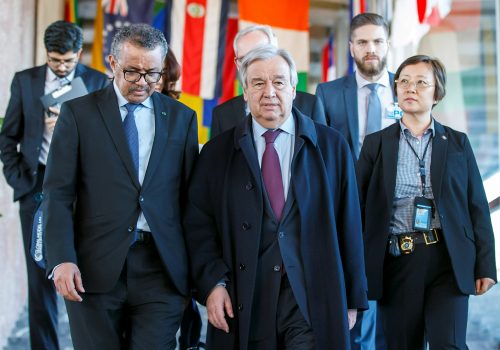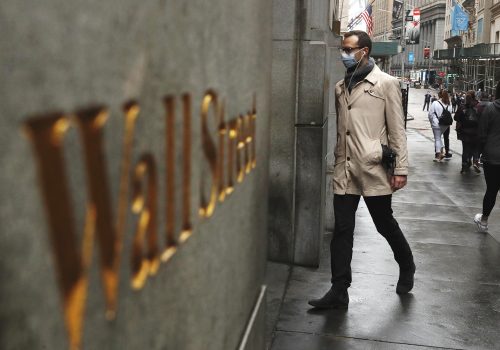The U.S. role as the world’s leading oil and gas producer doesn’t feel as empowering as it recently did, with oil prices heading into negative territory for the first time ever this week.
Yet there is an opportunity in the oil industry’s unprecedented crisis – and in the further months of market volatility that will come with it. This period presents a chance for the United States to forge a better and more sustainable path to global energy leadership than can be found even within the vast riches of U.S. shale.
What President Trump and his administration could do – perhaps better than any other country in the world due to its dual leadership in fossil fuels and renewables technology – is to help inspire and convene a global energy crisis conversation that points to the future.
Its purpose would be to reimagine the energy world post-COVID-19.
Get the Inflection Points newsletter
Subscribe to Frederick Kempe’s weekly Inflection Points column, which focuses on the global challenges facing the United States and how to best address them.
It would be a cleaner world that invests more deeply in renewables, for sure, leveraging the trillions of dollars in national stimulus programs around the world. However, it would at the same time safeguard oil and gas industries and their millions of global jobs by advancing promising, new technologies that decarbonize their use.
Clean energy producers would have a prominent place at the table – to include everything from advanced batteries and solar to nuclear and carbon capture. So would major consuming states like China and India. The institutional setting would go far beyond anything possible even in an expanded OPEC-plus-plus, but producing states would be there.
With Saudi Arabia in the chair of the G20 this year, the world could build on its convening of energy ministers on April 10 for an ongoing, structured conversation to include all relevant government and industry stakeholders.
The aim would be to lay out a practical path to a more sustainable energy system that recognizes we’re going to need a lot of different technologies and that the approaches and economic implications will vary across geographies.
The climate community will confront the uncomfortable truth that oil and gas will remain a critical part of the mix for the foreseeable future; the fossil fuel industry will need to accelerate the lowering of its carbon footprint.
In working to convene such a conversation, President Trump would be building on the credibility he has gained among oil producing countries by brokering the recent, unprecedented production cut, without which the oil prices crisis would be far worse.
“We are most grateful my friend, President Trump, played a leadership role in midwifing our historic agreement,” Mohammed Barkindo, secretary general of OPEC, told me this week. “His engagement with his counterparts in the Kremlin, the Royal Court in Riyadh, and Mexico was timely.”
At the same time, President Trump could confound his critics among climate activists by embracing their job-creating technologies through stimulus and new infrastructure programs. Thus far, political polarization has blocked creative action on the US energy future.
U.S. officials will find an ally in Fatih Birol, the executive director of the International Energy Agency. OPEC officials say he inspired the recent G20 meeting on energy. Yesterday (April 24) he convened a virtual ministerial roundtable that focused on recovery packages around the world, with special attention on energy efficiency and renewable energy.
The IEA intended that meeting to be the first of many in the coming weeks intended “to exchange ideas, reflect, and drive strategic action,” wrote Birol and Dan Jorgensen, Danish minister for climate energy and utilities, describing their convening’s purpose.
“Around the world, leaders are getting ready now, drawing up massive economic stimulus packages,” they write. “Some of these plans will provide short-term boosts, others will shape infrastructure for decades to come. We believe that by making clean energy an integral part of their plans, governments can deliver jobs and economic growth while also ensuring that their energy systems are modernized, more resilient and less polluting.”
Some in the climate activist community have seen a silver lining in the COVID-19 crisis in improved air quality, captured in before-and-after photographs from around the world. Yet suggesting this could be the new normal neglects the unacceptable human pain of our ongoing economic shock.
Randolph Bell, the director of the Atlantic Council’s Global Energy Center, writes in a forthcoming article that before the layoffs of the past few weeks, the U.S. oil industry directly employed over 150,000 people, supported more than 10 million additional jobs, and made up 8 percent of U.S. GDP. There were 51,000 oil and gas job losses in March alone, with layoffs hitting blue-collar workers first.
“The polarized politics in Washington make the desired orderly transition impossible in a timeframe that is relevant to the current employment crisis,” says Bell. “All-or-nothing measures will only cause more paralysis while workers suffer.”
Letting the U.S. oil and gas industry collapse is a political non-starter and it won’t address environmental issues meaningfully. Without accompanying demand-side action, the U.S. will still consume significant amounts of oil and gas.
“We will just import it from countries with potentially weaker environmental regulation,” explains Bell.
A pandemic-driven drop in emissions is certain this year, but the lesson of the financial crisis of 2008-2009 shows that’s nothing to celebrate. Says the IEA’s Fatih Birol, “Although carbon dioxide emissions declined by 400 million tons in 2009, they rebounded by 1.7 billion tons the year after, the sharpest upswing in history, driven mainly by developing Asia,”
For him, the lesson is that smart policy decisions should be taken during the mind-focusing period of the crisis to protect jobs but also put emissions into structural decline.
That could involve betting big on game-changing technologies, such as lithium-ion batteries and hydrogen electrolyzers, which Birol says are now in a stage of development where wind and solar were in 2008-2009.
Here’s an idea:
Perhaps President Trump could use one of his daily COVID19 updates, standing beside Energy Secretary Dan Brouillette, to announce that he has instructed his administration to re-imagine the energy world with global partners in a way that will tap America’s best brains and its vast resources.
He could protect at-risk producers, bring stability to markets and decarbonize the environment – all at the same time.
That would be true energy dominance.
This article originally appeared on CNBC.com
Frederick Kempe is president and chief executive officer of the Atlantic Council. You can follow him on Twitter @FredKempe.
MUST-READS FROM A WORLD IN TRANSITION
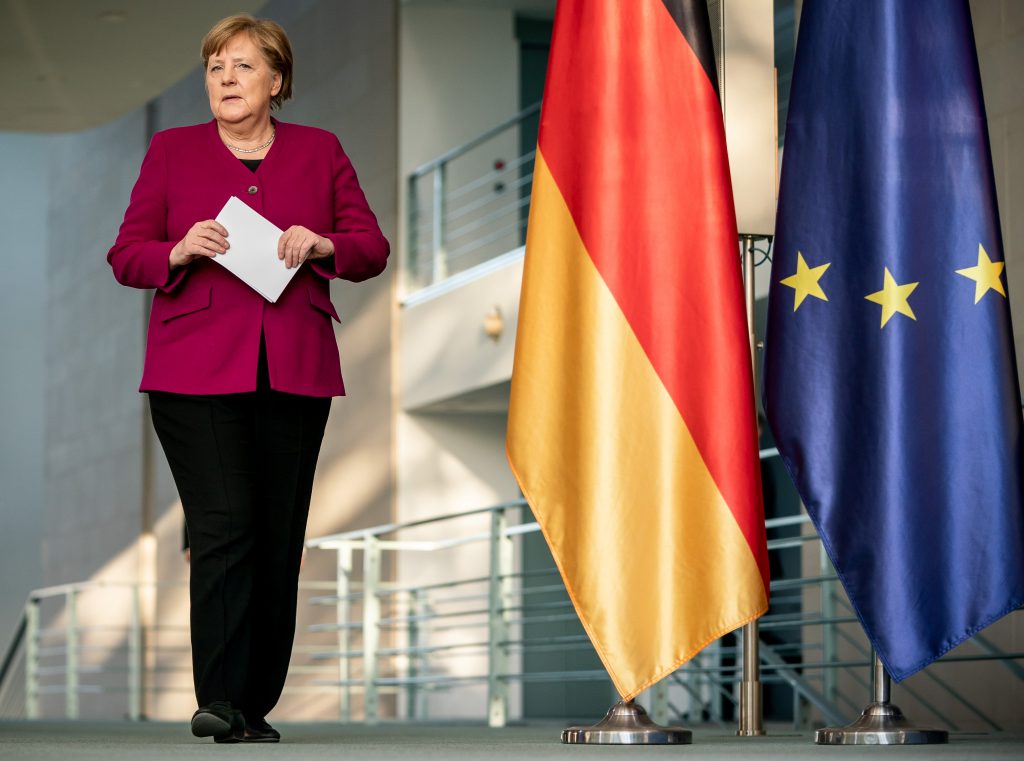
This week’s top reads circle around COVID19.
The first comes from the Atlantic Council’s Mat Burrows and Peter Engelke, laying out three scenarios for a post-COVID-19 world and providing a look at the unfolding geopolitical implications.
The second is a compelling, if disturbing, answer to the question, “What does China Want?” It comes as an excerpt in The Atlantic from a new book by former National Security Adviser H.R. McMaster, who is also an Atlantic Council board director.
Next come two very different takes on Germany’s approach to COVID19. One, by Saskia Miller, profiles Angela Merkel’s impressive role as “scientist-in-chief.” The other, from Politico’s Matthew Karnitschnig, reflects on Germany’s failure to do more financially to help its European neighbors.
By invitation, Bill Gates tells us in The Economist why we’re only about a third through the COVID-19 story, and how three medical breakthroughs could help write the rest.
Finally, don’t miss an elegant reflection by Neil King, friend and former Wall Street Journal colleague, on how his fight with cancer prepared him for these times.
#1. NAVIGATING THE FUTURE
What World Post-Covid-19?
Mat Burrows and Peter Engelke / ATLANTIC COUNCIL
Read this important work by Mat Burrows and Peter Engelke to understand how the Atlantic Council and global decision-makers can shape the future in these disruptive times.
They depict three radically different future scenarios. One ends in a Great Depression that even the best monetary and fiscal efforts by major powers cannot prevent. The second portrays how China could emerge as the hands-down winner, expanding its reach around the world. The third outlines how renewed U.S. leadership can shape a better world and revive multilateralism alongside its long-time partners and allies.
This provocative read will be followed by more Atlantic Council work in the weeks ahead exploring the geopolitical implications of the virus and outlining strategies for managing its impact. Read More →
#2. UNDERSTANDING CHINA
How China Sees the World – And How We Should See China
H.R. McMaster / THE ATLANTIC
“China has become a threat,” writes H.R. McMaster, the former U.S. National Security Adviser, “because its leaders are promoting a closed, authoritarian model as an alternative to democratic governance and free-market economics.”
If you’re concerned about China’s rise, read every word of this excerpt from McMaster’s forthcoming book, Battlegrounds: The Fight to Defend the Free World. Written with clarity and power, he starts with a visit with President Trump to the Forbidden City and finishes with a roadmap for how to most effectively push back against China.
“The Chinese Communist Party is not only strengthening an internal system that stifles human freedom and extends its authoritarian control,” he writes. “It is also exporting that model and leading the development of new rules and a new international order that would make the world less free and less safe.” Read More →
#3. ANGELA MERKEL: SCIENTIST IN CHIEF
The Secret to Germany’s COVID-19 Success: Angela Merkel is a Scientist
Saskia Miller / THE ATLANTIC
The eurozone’s problem country: Germany
Matthew Karnitschnig / POLITICO
These two stories about Germany, still Europe’s most significant country, may seem contradictory, but both are true.
Germany is a European leader in confronting the virus, Saskia Miller reports, because Chancellor Angela Merkel is more scientist-in-chief than commander-in-chief. She tracks Merkel’s characteristically rational response “coupled with an uncharacteristic sentimentality.” Read More →
Matt Karnitschnig in Politico covers the other side of the COVID-19 coin: Germany’s reluctance thus far to use its economic clout to help to its neighbors by mutualizing European debt. “If Germany is the key to resolving the problem,” he writes, “that’s largely because it is the problem”. Read More →
#4. THREE MEDICAL BREAKTHROUGHS
Bill Gates on how to fight future pandemics
Bill Gates / THE ECONOMIST
“Over the next year,” writes Bill Gates in The Economist, “medical researchers will be among the most important people in the world.”
He discounts the view that things might return to normal in a few weeks’ time, saying that humanity will only beat this pandemic “when most of the population is vaccinated.” He hopes that will happen by the second half of 2021 – still the “fastest humankind has ever gone from recognizing a new disease to immunizing against it.”
Aside from vaccines, he sees two other big medical breakthroughs emerging from the pandemic: one in the field of diagnostics, likely an at-home test akin to the one existing for pregnancy. The third is anti-viral drugs, “an underinvested branch of science.” Read More →
#5. UKRAINE’S FORGOTTEN WAR
How Cancer Prepared Me for Life Under Coronavirus
Neil King / THE NEW YORK TIMES
Savor this poetic reflection by Neil King, my friend and colleague from years at The Wall Street Journal, on his singular fight with cancer and how that might inform what good we can draw from our common battle with COVID-19.
“We are all reorienting now, reappraising, sorting what matters from what doesn’t,” he writes. “From the fear and uncertainty of this moment, from the shock of this global deprivation, we might even extract a deeper love for all we are given.”
I’ve printed out his final paragraph and put it on my wall.
“Soon, if lucky, we will return to some version of our previous freedoms,” he writes. “And if lucky, just once, we will do the things we so want to do now – the huge dinner with friends, the concert at Carnegie Hall, the trek through the Alps – as though we will never do it again. Wiser for the jolt, we will take our time before taking all we’ve been granted for granted again.” Read More →
QUOTE OF THE WEEK
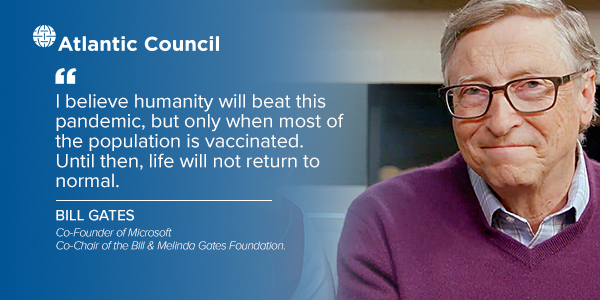
ATLANTIC COUNCIL TOP READS
Image: Aerial view of a floating solar energy farm transformed from an abandoned dam at a photovoltaic power station in Fenyi county, Xinyu city, east China's Jiangxi province, 17 May 2018.
